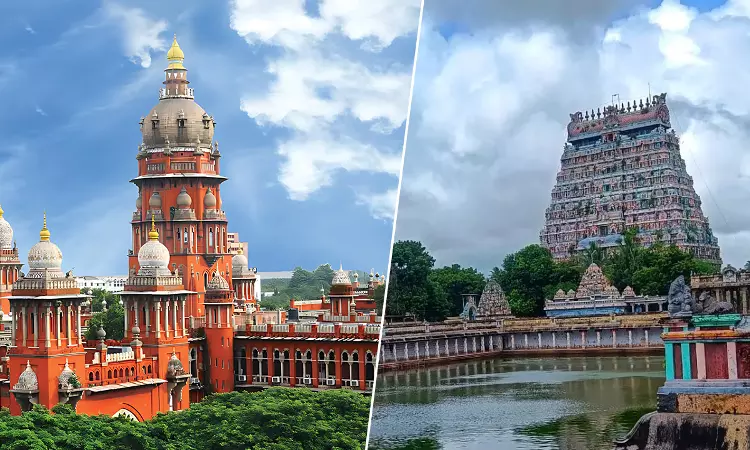Chidambaram Temple Row: Plea In Madras High Court Challenges Government Order Allowing Devotees To Climb Kanakasabhai Mandapam
Upasana Sajeev
30 Jun 2023 9:32 AM IST

Next Story
30 Jun 2023 9:32 AM IST
A plea has been filed in the Madras High Court challenging a Government Order passed in May 2022, allowing devotees to climb the Kanakasabhai Mandapam to have darshan of the deity at Sri Sabhayagar Temple in Chidambaram. The plea has been filed by TR Ramesh, President of Temple Worshippers Society and Indic Collective Trust. In his plea, Ramesh claims that the worship of the deity and...
